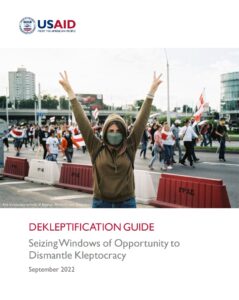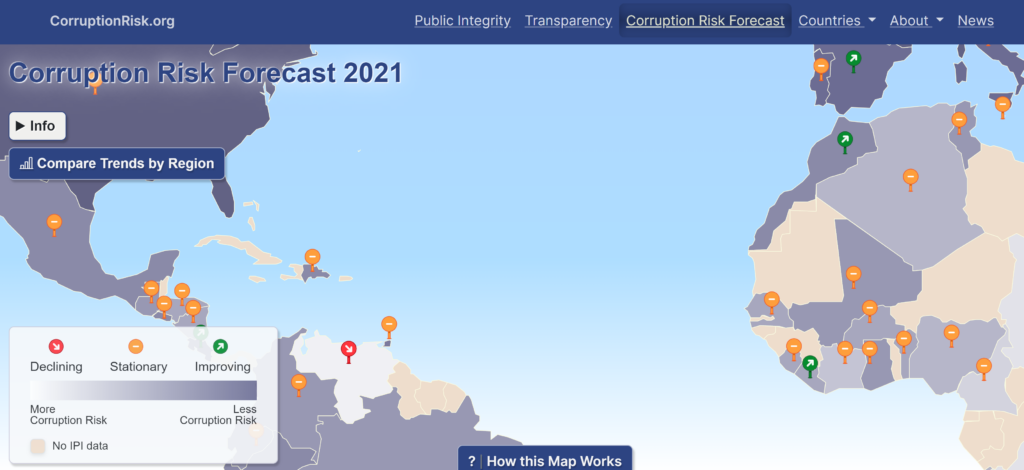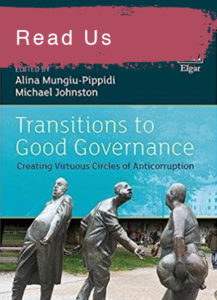
USAID today released its Dekleptification Guide, a new handbook for uprooting entrenched corruption and seizing windows of opportunity to dismantle kleptocracy:
The Guide brings together lessons learned based on groundbreaking reform movements around the world, from Ukraine to Malaysia, from South Africa to the Dominican Republic. It highlights the work of the heroes of dekleptification: engaged citizens who risk it all to open windows of opportunity, make government work for the people, and lead their country toward a post-kleptocratic future. …..The full Guide is available on USAID’s website here.
Many things can be done in Western countries to prevent kleptocrats from laundering money without destabilizing the fragile countries they come from, argues Alina Mungiu-Pippidi, professor of democracy studies at the Hertie School in Berlin and the UNODC expert in charge of developing a system of objective corruption indicators.
A newly released analytical tool called the Corruption Risk Forecast (CRF) surveys 120 countries to gauge the causal determinants of public integrity and combines them with the latest political developments. The findings of this tool are triangulated with those of older indicators like the World Bank’s rule of law score, the Rule of Law Index, and the work of the popular V-Dem Project, adds Mungiu-Pippidi, a former Reagan-Fascell fellow and Lipset lecturer at the National Endowment for Democracy (NED).

This data offers five lessons on international support for the rule of law, she writes for Carnegie Europe:
- Risks of overly broad definitions
- Avoid interventions that would destabilize countries
- Curtail executives
- Recognize modest impact
- Avoid tensions between anticorruption and rule of law
 The fundamental question that scholars like Thomas Carothers and Francis Fukuyama asked after 1989—whether the rule of law can actually be promoted from abroad—has largely been answered in the negative, Mungiu-Pippidi concludes. Helpful international support is still possible, however, if the rule of law is defined more thinly and procedurally as a rule-based system, sanctioning those who break the rules and assisting those who build and preserve such a system.
The fundamental question that scholars like Thomas Carothers and Francis Fukuyama asked after 1989—whether the rule of law can actually be promoted from abroad—has largely been answered in the negative, Mungiu-Pippidi concludes. Helpful international support is still possible, however, if the rule of law is defined more thinly and procedurally as a rule-based system, sanctioning those who break the rules and assisting those who build and preserve such a system.
The International Forum’s Melissa Aten and John Glenn relaunch the Power 3.0 podcast this week with “Countering Kleptocracy After Russia’s Invasion of Ukraine: A Conversation with Jason Sharman.” The conversation highlights democracies’ initial anti-kleptocracy measures in response to Russia’s invasion, how to take those responses to the next step, and the role of civil society in fighting kleptocracy.







